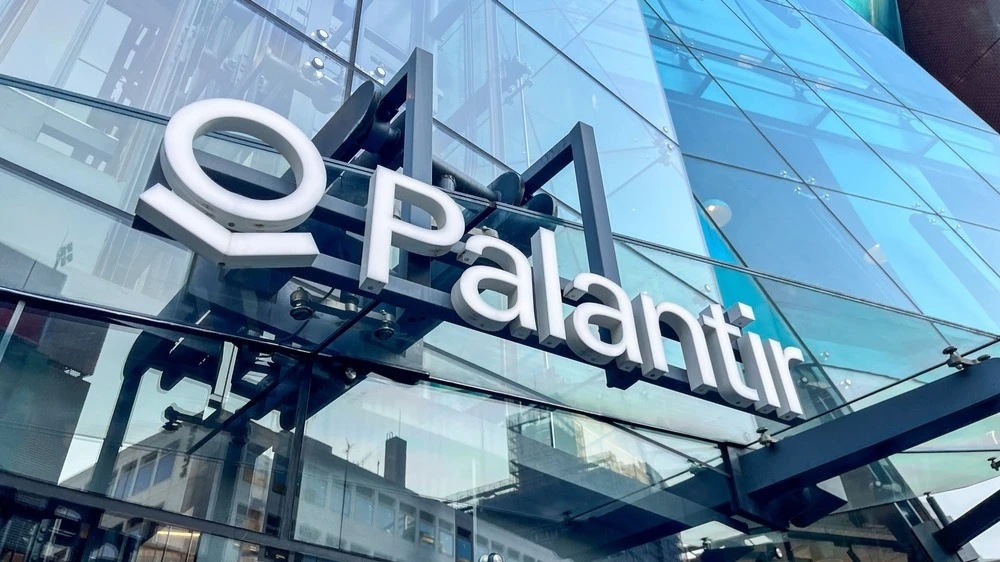Investors who played against Palantir are giving up. What are the dangers of such bets?
Since the beginning of the year, Palantir stock has soared 95% and has performed the best in the S&P 500

Shorts who bet on the fall of shares of Palantir, a developer of AI for military and civilian needs, are closing short positions. From October 2024 to June 2025, the company's securities rose in price by 300%, and shorts lost about $7 bln. The rally in Palantir shares is supported by the excitement of retail investors: they believe in the growth of the company's revenue amid the boom in artificial intelligence and geopolitical tensions. Analysts recognize that the valuation of these securities is overvalued, but believe that it is dangerous to bet on the fall of quotations.
Details
Investors who were playing down Palantir shares are exiting short positions en masse, Bloomberg reports citing data from analyst firm S3 Partners. According to them, the share of such bets fell from October's maximum 5% of the total number of shares in circulation to 2%. During this time, the company's quotations soared by almost 300% amid interest from private traders and increased geopolitical tensions, which turned out to be a loss of about $7 billion for shorts, Bloomberg writes. The growth of shares zeroed out the profitability of bets on their fall, the agency explains.
What about the stock
In trading on June 26, quotes of Palantir jumped by 4% and at the peak cost over $148 - then they lost some of the growth, but are still on the way to a record close.
Since the beginning of the year, the company's shares have almost doubled in price, showing the best dynamics among the members of the S&P 500 index, Bloomberg notes. Investors are buying them, encouraged by Palantir's developments in the field of artificial intelligence and the fact that it is receiving more government contracts from the Trump administration. The company's stock is the most expensive in the index, at 76 times projected revenue. By comparison, the market leader in AI chips, Nvidia, has this figure at 17.
Contrary to the high valuation and rapid growth, Palantir's shares show surprising resilience, emphasizes Bloomberg. The growth of quotations is supported by strong interest from retail investors convinced that the demand for Palantir's AI products will provide it with a rapid increase in revenue. The agency's analysts forecast that it will add 36% and 29% respectively between 2025 and 2026, one of the highest growth rates among Nasdaq 100 companies.
Palantir is consistently among the most traded stocks on the Interactive Brokers platform, and is also the third most traded stock in terms of net retail purchases, just behind Tesla and Nvidia, Bloomberg notes, citing Interactive Brokers data and Vanda Research. Some even compare them to "meme" stocks - which grow not due to fundamentals, but on hype.
What the analysts are saying
Against the backdrop of such strong growth, betting against Palantir is simply dangerous, despite the clearly inflated valuation, said Thomas George, president of Grizzle Investment Management. "The hype [around the company] could last longer than the bears or shorts would like," he said in a commentary for Bloomberg. - "We've seen investors get burned more than once trying to play against these securities. George also noted that "Palantir is in exactly the right industry for the future of defense technology, so the market may view recent developments as a favorable backdrop for the company." At the same time, he added: "Yes, heightened geopolitical tensions play into Palantir's hands, but even that does not justify such an inflated valuation of the shares." In his opinion, they are bought "more on emotion than on the basis of common sense or calculation".
"Palantir is trading at a completely insane valuation - but that's the world of AI stocks," agrees Louis Navellier, head of investment firm Navellier & Associates and a Palantir shareholder. "In the short term, [Palantir's] shares are hardly under threat: the demand for low-cost intelligence analytics is there, and interest in AI is unlikely to subside. But the multiple is still exorbitant, so shorts will still come back. They always come back," he concluded.
It is the high valuation of Palantir shares that remains the main reason for Wall Street skepticism, Bloomberg notes. Only a quarter of analysts following the dynamics of the securities recommend investors to buy them (Buy and Overweight ratings). This is unusually low for companies with a market capitalization of more than $300 billion, the publication stresses. More than half are neutral, while the rest advise selling. Wall Street's average target price suggests Palantir shares will fall 25% over the next year, the weakest earnings forecast in the Nasdaq 100, Bloomberg points out.
This article was AI-translated and verified by a human editor
